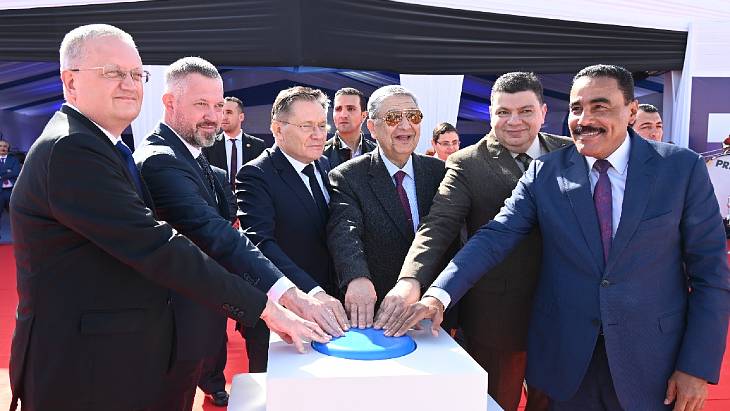The occasion was attended by Egypt’s Minister of Electricity and Renewable Energy, Mohammed Shaker, Chairman of the Egyptian Nuclear Power Plant Authority (NPPA), Amged El-Wakil, General Director of Rosatom, Alexei Likhachev and Senior Vice President of ASE JSC for NPP Construction Project Management Alexander Korchagin.
A permit to allow the construction to go ahead was issued by the Egyptian Nuclear and Radiological Regulatory Authority at the end of October.
Egypt's Nuclear Power Plants Authority in July 2021 applied to the Egyptian Nuclear and Radiological Regulatory Authority for a construction permit for the first two units at El Dabaa, in the Governorate of Matrouh on the coast of the Mediterranean Sea, about 130 km northwest of Cairo. The plant is planned to comprise four VVER-1200 units, like those in operation at the Leningrad and Novovoronezh nuclear power plants in Russia, and the Ostrovets nuclear power plant in Belarus. Unit 1 began construction in July this year and applications to build units 3 and 4 were submitted in January.
Contracts for the plant came into force in 2017, with Russia’s Rosatom not only building the plant, but also supplying nuclear fuel for its entire lifecycle, providing training and support for the first 10 years of its operation and also building a storage facility and containers for storing spent nuclear fuel.
Shaker said: "The Egyptian-Russian team demonstrates the highest level of professionalism and works ahead of schedule … I am sure that the nuclear power plant will make a great contribution to the qualitative improvement of the standard of living in the country and will allow Egypt to take its rightful place among the technological leaders in the region."
Likhachev said Rosatom was building 34 power units in 11 countries "but the project in Egypt is of particular importance for us, because El Dabaa will be the first nuclear power plant on the African continent built using Russian technology. This is the largest Russian-Egyptian cooperation project since the construction of the Aswan Dam … this will create a solid foundation for the confident and sustainable development of Egypt for decades to come".
El-Wakil was "encouraged by Egypt's success in establishing itself as a regional leader in the peaceful use of nuclear energy, which I am sure will benefit the regions of the Middle East and North Africa".
Egypt's goal is for nuclear power to represent 9% of electricity by 2030, which would be achieved by the commercial operation of the first two units by that time, directly displacing oil and gas.















